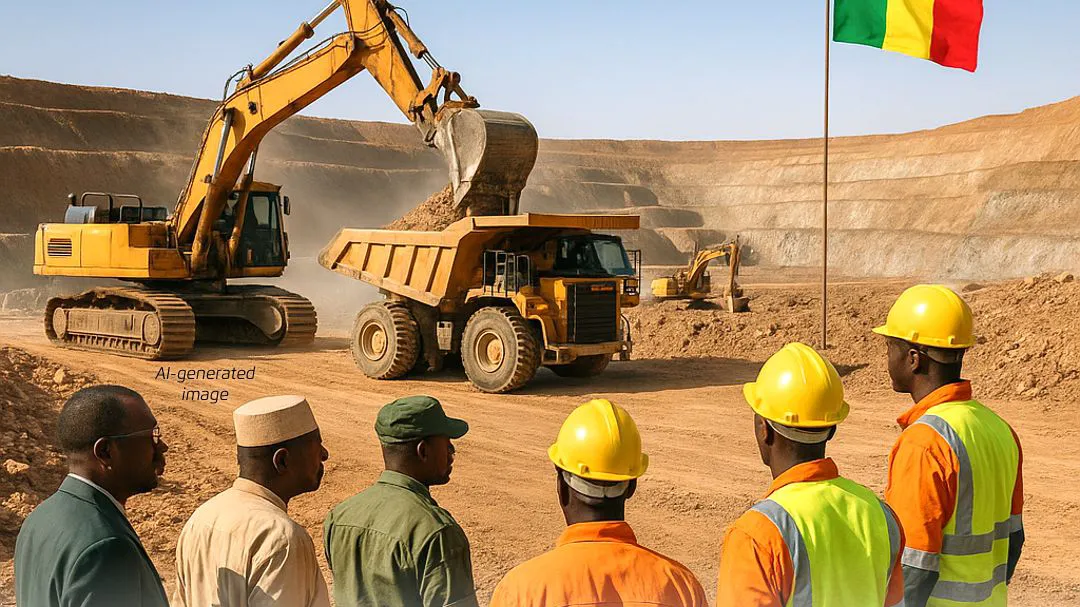Barrick’s Loulo-Gounkoto Mine in Mali Restarts Under State Control

Mali’s Loulo-Gounkoto gold mine restarts under state control after a nine-month halt, reshaping investor confidence and Barrick’s future in the region.
Mali’s Loulo-Gounkoto gold mine, one of the most significant gold operations in West Africa and a cornerstone asset for Barrick Mining Corporation, has officially resumed operations under state control after a nine-month shutdown. The restart follows an extended period of tension between Barrick and Mali’s military-led government, which seized control of the mine earlier in 2025, detained employees, and blocked gold exports. This transition represents a turning point for both Mali’s mining sector and foreign investment relations, as the country continues to navigate a changing regulatory and political landscape.
The mine is now managed by Soumana Makadji, a state-appointed administrator who assumed control in June. Under his direction, operations have restarted with renewed payments to key contractors, including Maxam Corp., Sandvik Group, and Etasi & Co. Drilling, allowing mining and processing activities to resume. Mali’s Minister of Mines stated that the interim management structure would ensure continued gold production, protect employment, and maintain contributions to the national treasury during this period of state oversight. The government has positioned the restart as a demonstration of its ability to stabilize the sector and keep strategic assets operating despite disputes with multinational operators.
Loulo-Gounkoto, located in western Mali near the Senegalese border, has been a prolific gold producer, yielding 723,000 ounces in 2024, which made it one of Barrick’s largest and most profitable African operations. However, Barrick’s relationship with the Malian authorities has deteriorated sharply over allegations of unpaid taxes, disagreements over mining legislation, and the detention of four employees accused of financial misconduct, charges that the company firmly denies. The fate of one ton of gold seized by the government during the standoff also remains unresolved. Barrick has initiated international arbitration proceedings to contest the legality of Mali’s actions and recover its assets, while other miners such as Allied Gold Corporation and B2Gold Corp. have opted for negotiated settlements to restore stability in their Malian operations.
This government-managed restart underscores the delicate balance between state sovereignty and investor confidence in Africa’s mining jurisdictions. While Mali’s authorities seek greater control and revenue retention from their mineral resources, prolonged disputes risk undermining the country’s reputation as an investment destination. The Loulo-Gounkoto situation highlights a broader regional trend in which governments are asserting stronger roles in resource governance, often through revised tax codes, local participation mandates, and export controls.
For Mali and the wider West African mining industry, the resumption of production at Loulo-Gounkoto offers a short-term economic reprieve but raises long-term questions about the security of foreign investments and contract stability. If managed pragmatically, the restart could preserve Mali’s position as one of Africa’s top gold producers; however, sustained uncertainty may prompt global mining companies to redirect capital toward more predictable jurisdictions.
Mini-Glossary
- State Control: Temporary or permanent transfer of operational management from a private company to a government authority.
- Arbitration: A legal process used to resolve disputes between parties outside of national courts, often invoked in international business conflicts.
- Contractors: Independent service companies that provide mining, drilling, and blasting operations on behalf of mining firms.
- Mining Legislation: The set of laws and regulations governing mineral exploration, production, and revenue sharing in a country.
- Gold Ounce (oz): Standard unit of measurement for gold production and trade; one ounce equals about 31.1 grams.
- Export Blockade: A restriction or suspension of a company’s ability to export minerals, often imposed during regulatory or political disputes.
